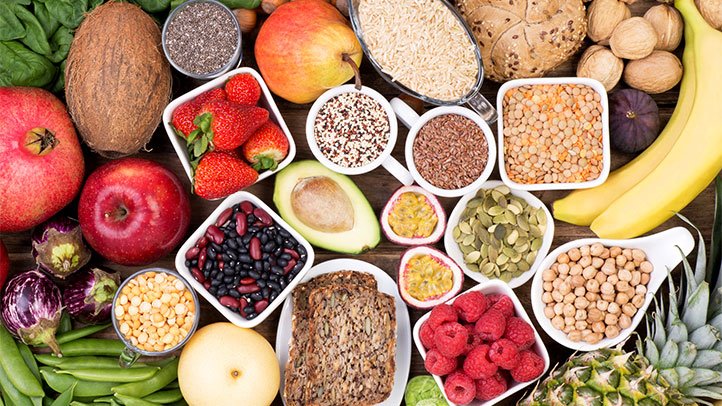
It depends on what type of disease you are trying to prevent, the definition of prevention can vary. Adults mean maintaining a healthy weight, and preventing weight gain. Children can prevent obesity by decreasing their intake of high-fat food and increasing their physical activity. It can also be achieved by altering social and economic policies and environmental factors. Here are some options for obesity prevention. You can combine these methods or use them individually. Using these strategies can make a difference for many individuals.
An integrated, multi-level approach to obesity prevention may be able to influence social norms regarding eating habits and promote healthy living. The epidemic of obesity is not caused by one person. However, the main factor in this problem is food. Obese people will eat more until they feel full. This can lead to an increase in appetite and a tendency to eat even after eating. They also may eat more because they are stressed or anxious. Further, the modern lifestyle is less physically demanding and less energetic. Many people also avoid physical activity that burns calories. In such a situation, it is vital to act to eradicate this global epidemic.

As a number of programs have been shown to reduce the risk of obesity, community-based prevention programs are becoming more popular. These interventions typically target the environment, such as television and computer use, which are both high calorie and passive. They also target individual behavior such as availability of play equipment in children’s areas. These programs don't just help you lose weight. They can also encourage active play and good sleep.
A successful obesity prevention program should target several different levels of the population. It is important to reduce obesity by changing unhealthy and overweight behaviors. Focus should be on fruits, vegetables and whole grains as well as nuts, legumes, and whole grains. By doing this, they can reduce the risks associated with obesity, which include high cholesterol and heart disease. They should also be active. This will increase their chances to lose weight. Prevention is important and should be pursued by everyone.
Different prevention strategies may have different goals. For example, universal obesity prevention plans concentrate on changing social norms and environmental conditions that promote obesity. For targeted obesity prevention, programs are designed to address the specific needs of certain groups. Interventions aimed at teenagers and children are more likely than those aimed at adults to improve their health. Prevention strategies for children should include preventing childhood and adolescent obesity.

In addition to behavioral changes, a healthy diet is essential for obesity prevention. These are three key strategies to avoid obesity: eat a healthy diet, get enough rest and eat well. These approaches will not only help you achieve your goal of a healthy weight but will also minimize the risk of developing many chronic diseases. Preventing obesity is key to reducing your risk of heart disease, high blood pressure and diabetes. However, you must also make sure your body is in good condition.
FAQ
How many times a week should I exercise?
It all depends on how much time and what kind of exercise you like. An average guideline is to do moderate-intensity aerobic activity 3 to 5 days per semaine. It's important that you don't overdo it. Consistent exercise is essential to achieving maximum benefit from your workouts.
Which exercises are most effective for me?
It really depends on the type of fitness goal you have. Some people concentrate on endurance activities such running, cycling, swimming. Some people enjoy lifting weights and using resistance bands. There are many types of exercise programs today. Pick the option that fits your needs.
What if I exercise and drink alcohol?
Yes. Alcohol can increase energy expenditure, speed recovery time, and reduce soreness.
Additionally, alcohol can increase insulin sensitivity and make it easier to absorb glucose.
However, alcohol can lead to dehydration that can slow down your metabolism. You may also experience a reduction in testosterone production which can lead to decreased muscle-building potential.
This is why women shouldn't have alcoholic drinks before exercising. Women who drink heavily should wait at the least 24 hours before exercising.
Nursing mothers should abstain from alcohol as much as they can.
Men should have no more than one drink per day.
Is it true that overeating protein causes kidney stones?
Protein helps maintain healthy bones and tissue. Over-consuming protein can result in calcium being excreted through the kidneys. This can lead to kidney stones.
It's important to note that not everyone gets kidney stones after eating more than 2 grams of protein per kilogram (2.2 pounds) of body weight. You don't have to eat a lot of protein to get kidney stones.
You can prevent kidney stones by watching your sodium consumption. Sodium regulates the body's water balance. A high level of sodium can increase the risk of developing kidney stone.
You may also want to reduce your protein intake in the event of kidney stones. For most people, protein provides half their daily caloric requirements. If you cut back on protein, you'll likely lose weight.
If you do decide to eat more protein, don't go overboard. You should aim to consume less than 20% of your total calories from protein.
Do I need to exercise every morning?
No! Get at least 30 minutes of moderate-intensity physical activity 5 days a week. It means you need to exercise hard enough or walk fast enough that you are slightly out-of- breath.
Statistics
- Cardmembers earn 5% Back at Amazon.com with a Prime Credit Card. (amazon.com)
- By John Thompson Take a whopping 38% off a set of PowerBlock Pros. (menshealth.com)
- 10 pounds in a month is likely during a lean bulking phase, especially for beginners. (muscleandstrength.com)
- An estimated calorie range for moderately active adult males falls between 2,200 to 2,800 calories per day, depending on age. (eatright.org)
- According to the American Heart Association, blood pressure should be checked at least once every two years, beginning at age 20. (my.clevelandclinic.org)
External Links
How To
What should my diet look like before I start a workout?
For weight loss, you should eat fewer calories per day than you burn during exercise. All your nutrients must be consumed.
These include protein, carbohydrates and fats as well as vitamins.
It is better to eat smaller meals throughout the day than three large ones.
You may not be as effective if there is too much hunger during your workouts.
You could try drinking water instead of energy drinks which contain caffeine and sugar. This will keep your body hydrated and energized.
You should ensure that you get enough fluids. Too much water can dilute your electrolytes.
Your body needs electrolytes for proper functioning.
You can drink sports drinks if you don’t have access water. They contain sodium, potassium, calcium, magnesium, and other minerals.
This will replenish your electrolytes. They won't be able to replace the electrolytes you have lost through sweating.
You could also consider taking a multivitamin tablet if you are concerned that you might lose too much salt from exercising.
These have extra vitamin B6 that helps regulate sodium levels in your body.
If you don't know the salt content of your foods and beverages, supplements shouldn't be relied upon.
They aren't regulated by the Food and Drug Administration (FDA).
One example is that some sports drinks contain more sodium.
Some sports drinks may contain artificial sweeteners or other preservatives. These may cause digestive problems.
Sea salt is an option if you don't want to eat too much salt.
It contains fewer chemicals that table salt.
Sea salt has a low level of iodine. It is an additional mineral required for healthy thyroid function.